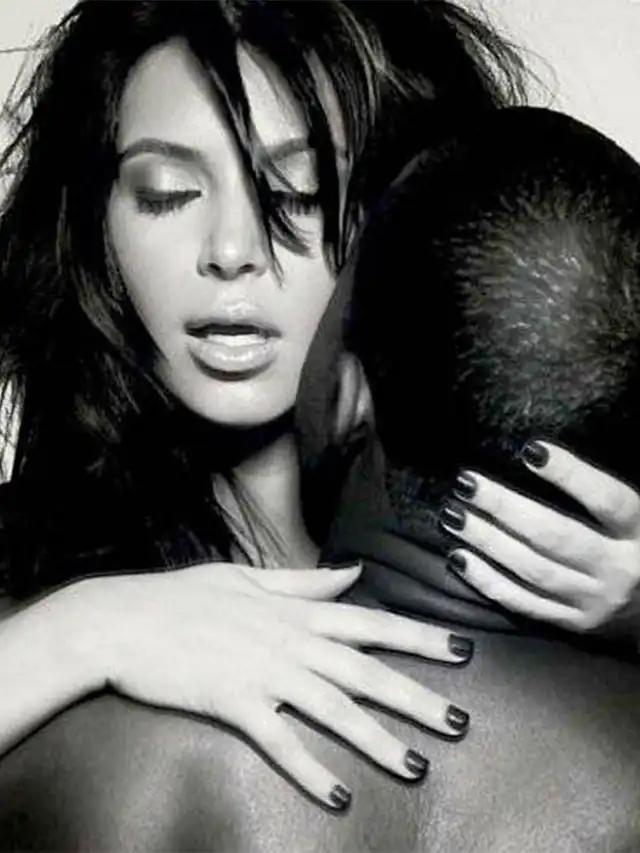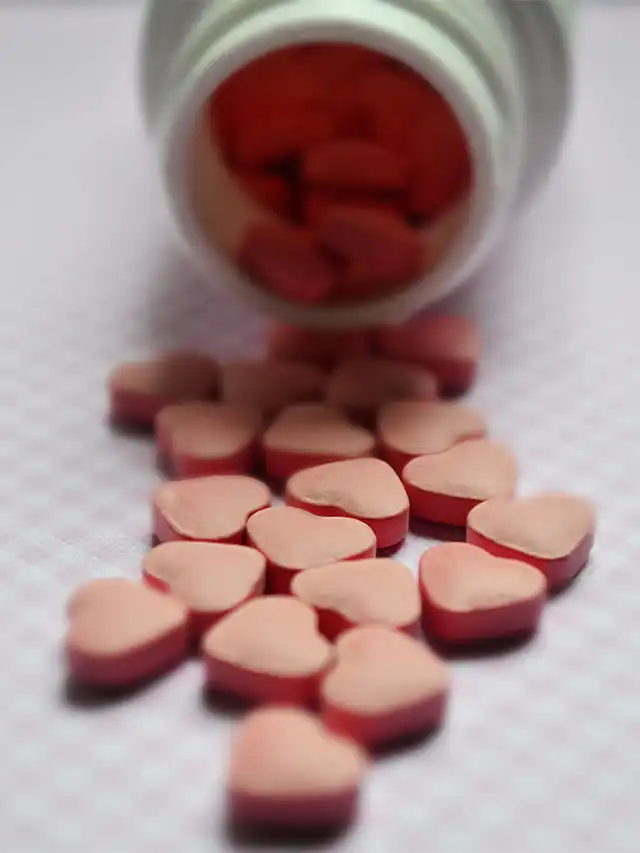Last Updated on August 9, 2024 by Paola Castillo
“The mature response to the problem of existence is love.”
― Erich Fromm, The Art of Loving
You all know that feeling. The butterflies in your stomach. The giddiness when they are near you. Fantasies about forever. Pining for the moment you will see them again. They can do no wrong and are the absolute embodiment of perfection. You never thought you could feel this way, but alas, that feeling is finally here. You feel as though you have found your soulmate. well, time to define if it is infatuation vs love.
This is the stuff of romance novels and chick flicks. And sometimes, if you’re lucky, of real life. For those of you lucky enough to have fallen in love once or twice, you know this feeling well. You know how magical its inception is – and just how painful its demise can be. I commend those of you lucky enough to stay in love. Those who transform the initial fiery burst of infatuation into the slow burn of true love. It’s not easy to do in our fast-paced, adrenaline-addicted, instant-gratification-oriented culture.
As a Manhattan psychiatrist who has treated over 1,000 patients (in many cases on love-related matters), I’ve learned a thing or two over the years about the difference between love and infatuation, and today I am going to share them with you.
Infatuation vs Love
Disadvantage with Infatuation
Let’s start with some neuroscience: the brain reserves its most delightful chemical concoction for the infatuation stage of a relationship. Infatuation produces a natural high. The brain releases several chemicals called neurotransmitters at the beginning of a relationship. Including dopamine, norepinephrine, and oxytocin, which all cause the feeling of euphoria at the start of a relationship.
Dopamine floods our system with feelings of pleasure. Norepinephrine enhances our experience of joy. Then, as if that wasn’t enough, oxytocin, often called the love or trust hormone, amplifies these effects. For most species in the animal kingdom, this giddy romantic feeling lasts only a few minutes or hours – days or weeks at the most. In humans, however, these chemicals can stay active in the brain for twelve to eighteen months, stoking our intense feelings of love, or rather what we think is love.

[SmartQuizBuilder id=8][/SmartQuizBuilder]
In the throes of that glittering infatuation, it is nearly impossible for any of us to see clearly. It can be difficult to recognize red flags at the beginning of the relationship when we are so deeply infatuated with the other person. And even if we do see these warning signs in the other person, we would find it unusually hard to believe that these were reasons enough to forfeit such a positive and reinforcing feeling.
This is one of the key differences between love and infatuation. Love which is a healthy emotion, vs. infatuation, is a kind of addiction beyond our control. The feelings brought by infatuation can lead people to stay in unhealthy and in some cases even dangerous relationships.
The trouble with infatuation is that it wears off. Unfortunately, before it does, many couples enter committed unions. This could include marriage (or otherwise), having children, and promising to live “happily ever after”. By the time the mist of infatuation clears (and any warning signs come into full view), people’s lives are intertwined in ways that have legal, social, financial, occupational, and emotional ramifications.
How Love Thrives
In contrast to infatuation, true love invites honesty and authenticity. You can’t truly love somebody without really knowing their essence: what makes them tick, their hopes and dreams for the future, the longings of their soul, the passion in their heart, and the values that make them who they truly are.

When two people initially meet each other, physical attraction and the powerful brain chemicals of infatuation can impede and often do, any real authentic connection.
At the start of a relationship, both people are often on their best behavior, wearing their people-pleaser hats and trying hard to hide their foibles, quirks, and what they believe to be the “unlovable parts” of themselves. Infatuation seeks connection yet fails to achieve authenticity.
This is why Elizabeth Gilbert, author of Eat, Pray, Love, writes, “Infatuation is not quite the same thing as love; it’s more like love’s shady second cousin who’s always borrowing money and can’t hold down a job”. Of course, this doesn’t mean we don’t love the feelings that infatuation brings (if only temporarily)!
But you’ll only know if the building blocks of true love are thereby showing somebody who you truly are, including the parts of you that you may fear are unlovable. Do you have shared values, open hearts, mutual respect, and a compatible vision for the future? Honesty with oneself and others brings truth. Otherwise, your “would be” self ends up having a fantasy relationship with their “would be” self, and nobody ever gets to know each other or develop an authentic connection truly.
True love entails being comfortable and completely yourself with another human being – and being accepted for who you are without judgment. It is also important to remember, in this case, that love is a two-way street. Not only do you need to feel loved and accepted completely for who you are, but to foster true love in your relationship, you need to provide that same love without judgment to your partner.
Look Past False Projections
Many couples have a hard time transitioning from the infatuation phase of a relationship to a true love connection. Getting stuck in the infatuation vs love cycle is most prevalent at this point. Here, the idealism of putting the object of their desire on a pedestal makes it hard for them to see the other person as they truly are. An important part of infatuation is projection: where we take all of our hopes, wishes, dreams, and fantasies (but also our fears, dreads, and emotional baggage) and project them onto the other person.

When we do this, we see in the other person what we want and expect to see in them, and not them as they truly are. We re-create this person in our image of what he or she should be, or what we wish they or were. In this way, we become infatuated not with the other person but with our fantasies and projections.
Then as the feelings of infatuation wear off and we see our partner for the first time as who they truly are and not what we have been projecting, it can leave us feeling confused, heartbroken, and almost as if we have been lied to like we never truly knew our partner.
Susan Campbell, Ph., says true love demands that we set aside our projections and begin to see what is in her book Getting Real. This is the only way we can have an authentic connection with another human being. By releasing the fears, expectations, and wishes we have projected onto our partners, we truly embrace being together with them.
This means relinquishing our beliefs about what should or should not be going on, what we expect, what we are prepared for, and what we judge as acceptable. If we are reluctant to do this, then the connection we make is not with the person in front of us but with our past – our fears, expectations, and wishes.
Peace with Imperfection
If your relationship survives the test of time, the veil of love’s illusion will eventually be lifted. You will begin to see the person in front of you more clearly. Standing beside the naked truth of one’s essence, besides all the imperfections that are so easy to overlook in the whims of infatuation, you have the opportunity to make a clear decision: is this the person you would like to love? If so, how do you open your heart to love and accept them fully and completely, exactly as they are? Can you love this person without trying to change them?
Sometimes we fall in love with somebody’s potential, holding the space for them to step into the more evolved and “better” version of themselves. Our partners may indeed change over time, but they also might not. In the tug-of-war between infatuation vs love., there are no guarantees, so expecting somebody to change as a condition of your love is never a good idea. To truly love your partner means to love who they are right now, not who they may or may not become.

Everybody has quirks, insecurities, bad habits, and what you (or they) deem to be “unlovable parts”. To be clear, accepting one’s imperfections does not mean accepting abuse or poor treatment. Once you know your partner’s imperfections, you need to ask yourself if you can accept these qualities in your partner. Can you accept them while supporting your partner in his or her journey of self-love, self-acceptance, and growth/transformation? If you and your partner both answer ‘yes’ to that question then you are starting to build a great foundation.
Be Drama-Free
In the toss-up between infatuation vs love, not everybody will pursue a relationship bound by true love once the infatuation disappears. For some, the first sign of dwindling passion signals trouble. I’m not feeling it anymore. I need to break up with her. He must not be “the One” after all. I need to find somebody with whom I can feel amazing ALL THE TIME.
Such thoughts echo in the minds of people who love to lose themselves in passion, desire, and intensity. They live for the chase, thrive on conquest, love dramatic gestures, and often fall prey to painful longing. They are masters in the art of infatuation. But while deeply craving connection, their need for the constant “high” makes them unable to sustain a long-term relationship.
Intense passion is often confused with true love and is usually associated with a strong and sometimes desperate attempt to possess or control the other person – sometimes to get something from them.

True love, in contrast, is relatively drama-free, calm, and peaceful. It is about loving and accepting another person as they are and not at all about trying to control them. When it is true love these obsessive worries about the future – When will he/she call me again? Is he/she seeing other people? Where is this headed? – will be replaced by honest, open-hearted communication and authentic connection. This is a natural progression of a healthy relationship to a deeper level of intimacy and commitment where passion can be rekindled and stoked.
Conclusion
As the Persian poet, Rumi wrote, “Love is the bridge between you and everything”. When we achieve true love, it opens our hearts and gives greater meaning to our lives. It connects us more deeply to all of the world. To achieve true love, you must be true to yourself. And while you certainly can enjoy the highs of infatuation, there is no need to fear when the infatuation begins to cease. Just remember – the death of infatuation oftentimes signals the planting of true love’s seeds.
To better understand your own feelings, take the Love vs. Infatuation Quiz. It can help clarify where your heart truly lies and guide you toward deeper, more meaningful connections.
[SmartQuizBuilder id=8][/SmartQuizBuilder]
Top Sexual Fantasies for Men: Explore the 6 Ultimate Desires
Sexual fantasies tend to push boundaries, mix things…
20 Kim Kardashian Shares the Best Sex Positions Used in Ray J Sex Tape
Kim Kardashian blew up the internet with her…
Women’s Biggest Sexual Fantasy | Dr. Jordan Peterson Psychologist
In this YouTube lecture, Peterson discusses “A Billion…
Best Love Pills for Men for Better Erection | DATA PROVEN 2024
The most well-known and commonly prescribed Best Love…
What is the difference between infatuation and love?
Whereas infatuation tends to happen very quickly and involves a strong attraction, love is a much deeper experience of knowing someone fully, feeling bonded and close to them, and caring about them in a way that’s both enduring and not centered around how they make you feel.
Does infatuation turn into love?
You might be wondering, however, whether infatuation can turn into love. The answer is yes! Most love begins with a period of infatuation. On the other hand, many cases of infatuation also fizzle out before they reach the level of deep emotional commitment associated with being in love.
Which is better infatuation or love?
True love induces a feeling of a close bond towards the other person that is mutual. While infatuation may produce feelings of closeness, because they are typically one-sided real, a lasting commitment by both parties isn’t possible.
What are the signs of infatuation?
– You See and Expect Perfection. Infatuation leads you to believe you have found the “perfect” person as well as the “perfect” relationship.
– You Have Persistent and Intrusive Thoughts.
– You Drop Everything for Them.
– You Become Jealous and Possessive.
– You Feel Tired and Alone.
How to tell infatuation vs love?
To distinguish between infatuation and love, one must take into account various aspects including the length of the relationship, its intensity, emotional stability, the perception of flaws, future orientation, selflessness, and fortitude in the face of adversity. In contrast to love, which is enduring, involves a deep emotional connection, and is characterized by stability, acceptance of imperfections, future orientation, selflessness, and resilience in the face of adversity, infatuation is frequently fleeting, based on surface-level attraction, and emotional highs and lows. To differentiate between love and infatuation, it’s critical to pay attention to these elements in your feelings and interpersonal dynamics.




